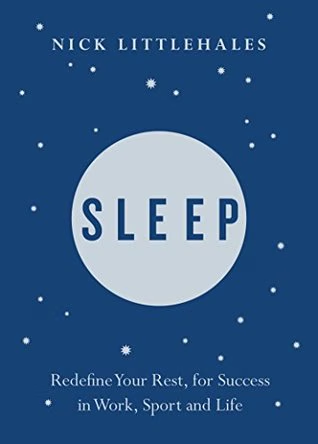In general, the concepts and ideas are pretty solid. A lot of common sense that revolves around using sunlight to help with sleep patterns. Somehow I personally experienced a similar sleeping pattern (sticking to a regular alarm, getting up quickly, getting sunlight) and it worked incredibly well for me for 2 years (until I broke the pattern).
The body of the book though is littered with how the author works with top sports teams, Manchester United, Man City, Arsenal, etc - top cyclists etc. I was happily convinced of his authority by chapter 1, but I didn't need repeated on every chapter. It felt like random name dropping (since most of the sports celebrities named were unknown to me).
All in all, there are some useful tips throughout the book, but probably didn't need so much of the constant reminders of who the author worked with.
23 Highlights
showing that our brains effectively wash away their waste toxins during sleep,
Teenagers get a bad press, but they're often just doing what their bodies want them to. As we pass the peak of our late-running clocks, at about the age of twenty, our rhythms revert to their genetic type, and they continue to creep earlier as we get older.2
Studies show caffeine is at its most beneficial in athletes at moderate quantities of around 3-6 milligrams per kilo of body mass,
On top of this, caffeine has a half-life of up to six hours, which means it will be present in your body much later than you might think.
Get a dawn-wake simulator, which recreates a sunrise in your bedroom to wake you up, from a reputable brand such as Lumie or Philips; open the curtains, go outside.
We hope to spend around 20 per cent of our time down here in deep sleep during the night.
and achieve at least four ideal routines per week.
One 'bad night's sleep' won't kill you - think of it in cycles per week.
'Fail to prepare, prepare to fail'
In summer, keeping the curtains or blinds closed all day and ventilating the room can help keep it a degree or two cooler than the rest of the home.
while everyone else could use a fan with a bottle of frozen water placed in front of it.
Of course, it's easy to undo all this good work by then brushing your teeth before bed in the blazing fluorescent light of the bathroom. One solution would be to brush your teeth earlier, and another would be to change the bulb in the bathroom to something less dazzling.
As any child is aware, the nose is made for breathing, the mouth for eating.'
Controlled Recovery Period
The correctly profiled surface should easily accept your body shape and weight, distributing your weight evenly and giving you a straight postural line, like the diagram below.
If you are sleeping in hypoallergenic bedding - mattress, mattress cover, sheets, duvet, duvet cover, pillow and pillow case - it's another marginal gain.
The bedding had to be quick-drying, which would rule out Egyptian cotton, but because ours was made from hypoallergenic microfibres, it wasn't a problem.
basic model will do, provided it's from a reputable brand such as Philips or Lumie.
you could use a product such as Human Charger, a jet-lag aid which will give you light through your ear canals and won't look any more conspicuous than it would if you were just listening to some music.
In many ways, our modern working practices can be traced back to the invention of the light bulb, which opened up the night to us.
Our ideal sleeping position is foetal, lying on the non-dominant side (right-handers sleep on their left side and vice versa),
once they hit fourteen, eight to ten hours is advised.
Spot your child's chronotype early so that when they are at school they know when their best time to study is, an empowering piece of awareness to take through their education and then into the workplace.
